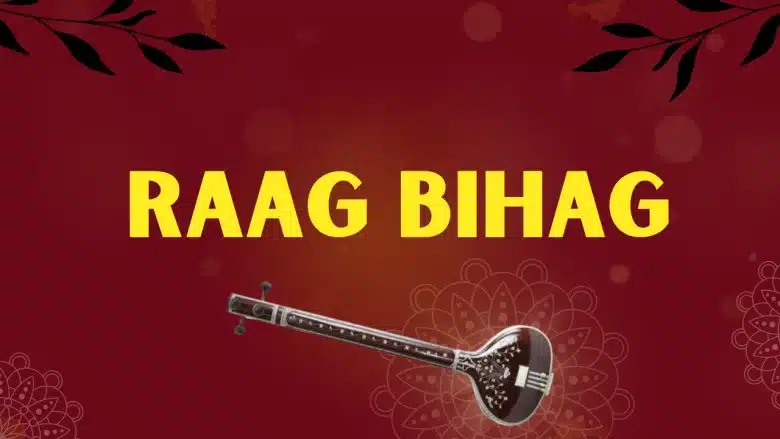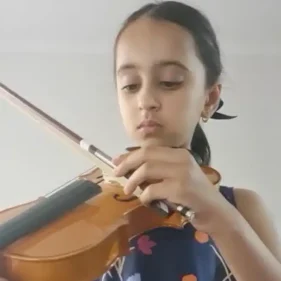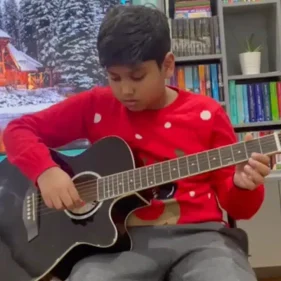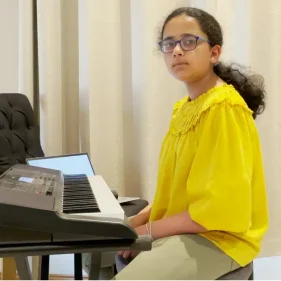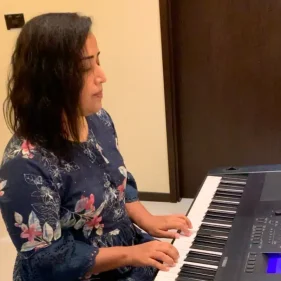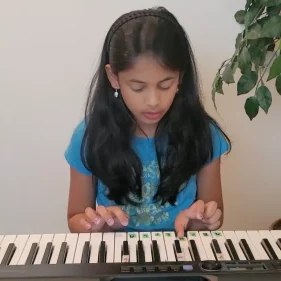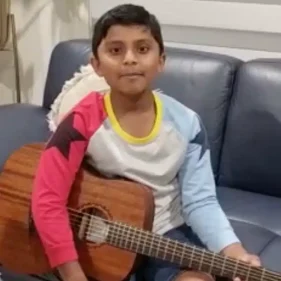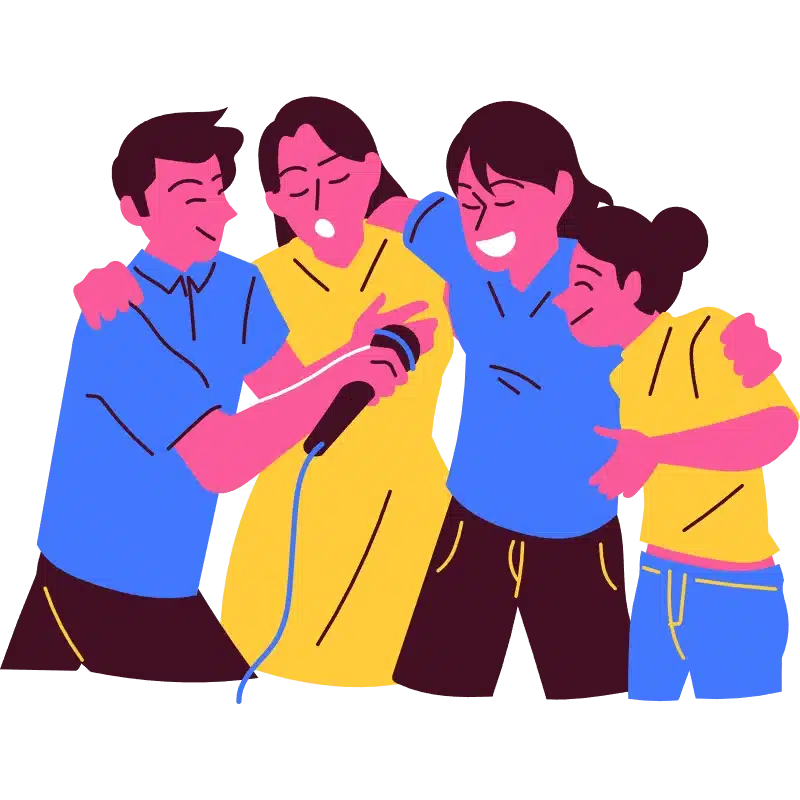Raag Bihag from Hindustani classical music which evokes the feelings of joy, happiness and celebration by its uplifting melody.
History of Raag Bihag
In the Hindu Bhakti movement, ragas played a significant role in spirituality. When dig deep into raag bihag history, beginners and experts alike enjoy listening to the lovely melody of Raag Bihag. The raga’s long history is still unknown, but some researchers trace it back to the Kedar and Gauri ancestries; the name itself is said to have come from the Sanskrit word “Vihang,” which means “bird.” Bihag is a large raga that is used in both serious and lighthearted classical music genres. It fits very nicely with more mainstream genres like ghazals and movie soundtracks because of its air of lightness and femininity.
Musical Characteristics of Raag Bihag
Regarding the Thaat of Raag Bihag, it was originally thought to be Bilawal because Ma Teevra was not in use. The Raag is undoubtedly full of Bilawal Ang, such as D-G sangati, PmG RS, and so on. Speaking about mood of Raag Bihag, traditionally it is done up to midnight on a late night. The raga is famous for capturing sentiments of happiness and passion. Bihag makes use of both Madhyams (Shuddha and tivra) and all seven music swaras. When the phrase PA MA’ GA MA GA is used with Pa, only Shuddha Ma is utilized; tivra Madhyama is less common. Re and Da are employed in meend rather than as resting notes in Avaroha. Means Re and Dha are Varjit in the Aroha of Bihag, but these two Swaras are also used very little in its Avaroha. Nishad is a significant note in this Raag, and Alaps or Taans are usually initiated from this sound.
Thaat -Bilabal
Wadi -G
Sambadi -N
Time -Night(9-12)
Nature -shant (calm)
Pakar -Ni Sa Ga ma Pa Ma Pa Ga ma Ga Re Sa
Nyas -S G P N
Jati -Vakra(Audhav sampurna)
Aaroh -Ṇ S G M P NṠAbroha -S N D P MP GM GS
Aalap -SṆ PṆS GS ṆS GMP PMP GMGS ṆS MGP GMPN ṠNP MP MP GMGS
Bandish-1 (Based On Teen Taal- Madhyam Laye)
Stahi
Lata ulajhi sula jha ja balma
Hathomein mehndi lagi he mori
Lata ulajhi sula jha ja balma
Stahi Notation
SSMG | P-NDN | SNDP | PMGMS |
Lata ula jhi sula jha ja balama
G-G- | GMPM | G _ _ R | SṆ RS ṆṆ |
Ha thame mehndi la gi – – – he- mori
Antra
Mathe ki bindia bikhar gaee mori
Apne hath saza ja balma
Lata ulajhi sula jha ja balma
Antra Notation
G M PM | Ṡ N Ṡ Ṡ | SSSS | N D P Ṡ N |
Mathe ki bindia bikhar gaee mori
S S G M | P – N D N | S N D P | PM G M G |
Apne hath saza ja balma SSMG | P-NDN | SNDP | PMGMS |
Lata ula jhi sula jha ja balama
Taan
Lata Ulajhi Sula
ṆS GMI PN ṠN | DP MIP GM G
Lata Ulajhi Sula
GM PN ṠN DP | MIP MIP GM G
Lata Ulajhi Sula
PN ṠN DP ṠN | DP MP GM G
Lata Ulajhi Sula
ṠN DP MIP GMI | PN ṠN DP MIP
Lata Ulajhi Sula
GM PN ṠN DP | MIP MIP GMI G
Lata Ulajhi Sula
ṠN DP MIP MIP | GMI GR SṆ S S
Lata ulajhi sula jha ja balama
GM PN SN DP | MIP MIP GM PN |
Lata ulajhi sula jha ja balama
SN DP MIP MIP | GM PN ṠṆ DP |
Lata ulajhi sula jha ja balama
Tehai
Lata ulajhi sula) 3 times
Jha ja balama – – –
Bandish-2 (Based On Teen Taal )
Stahi
Kanha jare jare jare sabariaa
Kahe roke mori gharki dagria
Stahi Notation
S M G P | P N N N | S N P P | MI M G G |
Kanha jare | jare| jare sa | bariaa |
GM PD GM | G R S N | S P MI P | G M G G |
Kahe ro | ke mori | gharki | dagria |
Antra
Jeso tano tero weso manva
Gari dungi mein to jane do ataria
Bahian dukhata mori bhari gagaria
Antra Notation
G M P N | S S S S |S N P G |P M N N |
Jeso | tano tero | weso | manva
S N P P | G M P P | M P G M | G R S – |
Gari du | ngi mein to | jane do a | taria – |
S M G P | MI D MI P | Ṡ N P P |G M |
Bahian du | khata mori | bhari ga | garia – |
Composition to Practice in Raag Bageshri
Ai- Dil-E-Beqarar Jhum (Film -Shahjehan)
Banke Chakori Gori, Jhum Jhum Nacho Ri (a.k.a. Jhum Jhum Nacho Ri) (Film – Hum Matwale Naujahan)
Boliye Surili Boliyan (Film-Grih Pravesh)
Chalenge Tir Jab Dil Par (a.k.a. Dil Ka Afsana Sunate Hain) (Film -Kohinoor)
Dil Jo Na Kahe Saka (Film – Bheegee Raat)
Hamare Dil Se Na Jana, Dhokha Na Khana (a.k.a. Piya Duniya Badal Beiman Humare) (Film -Udan Khatola)
Koi Gata, Main So Jata (Film -Alaap)
Kuch Aisi Pyari Sakl Mere Dilruba Ki Hai (a.k.a. E Musavir Tere Hathon (Film -Naya Kanoon)
Meri Ladli Re, Meri Ladli (Film-Andaaz)
Palkan Se Marg Jharun (Film -Daasi)
Phir Aayi Laut Bahar (Film-Non-Film Song)
Suhani Beriya Beeti Jay (Film-Milan)
Tere Pyar Mein Dildar (Film-Mere Mehboob)
Tere Sur Aur Mere Geet (Film-Goonj Uthi Shahanai)
Tujhe Jivan Ki Dor Se (Film-Asli Naqli)
Tum Bin Man Ki Baat (Film-Mrityudand)
Yeh Kya Jagah Hai Doston (Film-Umrao Jaan)
Zindagi Ke Safar Men Guzar Jate Hain Jo Makam (Film- Aap Ki Kasam)
Tum to pyar ho (Film-Sehra)
FAQs
When is Raag Bihag traditionally performed?
Raag Bihag compositions are usually performed in the evening or late at night . Between 9 a.m. and 12 p.m., it is supposed to perform.
What are the characteristics or features of Raag Bihag?
Raag Bihag is of Bilabal Taat. As in Aaroha Re, Da is missing, so it is of Audhav Sampurna Jati.
What is the history of Raag Bihag?
In the Hindu Bhakti movement, ragas played a significant role in spirituality. Beginners and experts alike enjoy listening to the lovely melody of Raag Bihag. The raga's long history is still unknown, but some researchers trace it back to the Kedar and Gauri ancestries; the name itself is said to have come from the Sanskrit word "Vihang," which means "bird."
What are the arohan abraham of Raag Bihag?
Below are the Aroha and Abroha of Raag Bihag .
Aaroh- Ṇ S G M P NṠ
Abroha –S N D P MIP GM GS
Related Blog: Raag Bageshri

